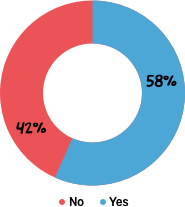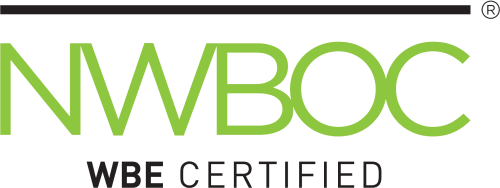The world is breathing a collective sigh of relief. 2020 is over. It was cruel. It was painful. And it was exhausting.
As much as we’d like to forget 2020, we can’t. And we shouldn’t. The lessons learned from a 2020 year in review can help steer us forward as we work to end to this pandemic, dismantle racial injustice and rebuild our economy.
I know I’ll remember 2020 because it wasn’t just turmoil. I saw resilience, innovation and compassion everywhere. Healthcare workers and scientists. First responders and election officials. Teachers. Families. Global corporations, small businesses, government and nonprofits.
And I saw that resilience, innovation and compassion up close at Eagle Hill. We count ourselves fortunate that we rapidly transitioned our entire workforce to support clients remotely. We committed to do better and leaned into tough conversations about racism, inequality, diversity and inclusion. And we took care of each other.
It also was a year of extreme learning by careful listening. Restaurants were hit so hard in 2020, and we listened to leaders in the trenches on cultur(ED) about how they’re innovating to keep their doors open and to change the culture of an industry that historically has not treated employees well.

There’s a space for trying to try to make things different, and this industry needs to change. Healthcare, obviously, and trying to figure out how to give the staff more time off so that they can feel more balanced.
— Amy Brandwein, Chef and Owner, Centrolina
We learned how teams at restaurants like the iconic Ben’s Chili Bowl and newcomer Willa Jean are doing all that’s in their power to foster diversity, equity and inclusion beyond their kitchens and into to their communities. We also listened to leaders via a webinar series and learned how to start rethinking our workplace culture so we can normalize uncomfortable conversations about race and bias.

If we listen with intentionality, we’re able to begin to uncover things that might not have been visibly present to us.
— Pedro Suriel, Vice President Diversity and Inclusion, Raymond James
We listened to the views of U.S. employees. We learned that across the nation, chronic workforce issues have been magnified by the events of 2020. For example, few U.S. workers (30 percent) trust their leadership to manage through a crisis. Even fewer (22 percent) believe their organization has a culture that fosters innovation and collaboration to deal with a crisis.
And we learned that workforce burn out is a big problem. More than half of the U.S. employees (58 percent) feel burnt out, and it’s even worse for employees with children in remote learning (65 percent). We’re also learning that it will be critical to listen to employees on vaccinations given that their views are split right down the middle when it comes to employer mandated COVID-19 inoculations.
Employees also indicated that their employers need to listen more. Workers said they want a voice in the parameters around staying safe at work, and more workers want working from home to remain an option. For companies implementing new technologies like automation, robotics and artificial intelligence, employees told us that leaders aren’t getting their input. Less than two in ten workers say they were asked for their views on technology decisions. As a result, only 19 percent of workers say their company invests in the right technologies to help employees do their job.
Workplace burnout
Q: Do you feel burnt out?

Essential workers, from grocery workers to nurses, face burnout
Ringing in a new year will feel different this year. Gone will be large in-person gatherings. And gone will be warm sentiments of a year gone by.
Instead, we can usher in a new year with reflections on the more than 300,000 American souls who lost their lives in 2020 to the pandemic. We can be grateful for the workers who protected public health and safety and kept our economy running. And we commit to creating a better future that makes racial justice, diversity and inclusion a reality, not just an aspiration.
And as leaders, I believe the most impactful step we can take in 2021 is to take a step back and listen more. Listen to employees, customers and stakeholders with intention so that we can bounce forward into 2021 stronger and better than before.
Intentional listening will drive informed action so we can fix issues that hinder performance—issues like burnout, low trust, and weak cultures. And listening will engage employees to help shape the “new normal” in 2021—be it working outside the office more, instituting different health and safety protocols, restructuring performance management in a more virtual world, deploying new technologies that better service employees and customers, and normalizing uncomfortable conversations.
I’m bidding farewell to a year like no other, but keeping the lessons close. Wishing you good health, resilience and prosperity in 2021.

Courage is what it takes to stand up and speak; courage is also what it takes to sit down and listen.
— Winston Churchill

